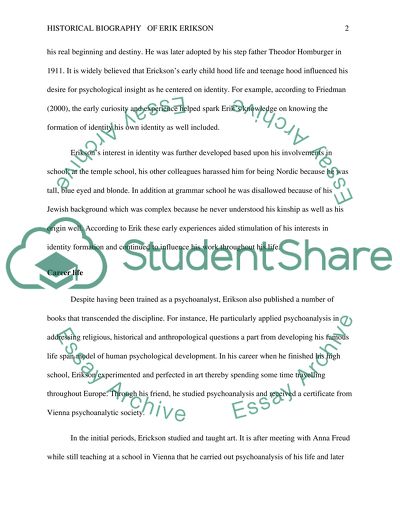Cite this document
(“Erik Erikson: The Pioneer of the Theory of Psychosocial Development Research Paper”, n.d.)
Retrieved from https://studentshare.org/psychology/1404079-erik-erikson-the-pioneer-of-the-theory-of-psychosocial-development
Retrieved from https://studentshare.org/psychology/1404079-erik-erikson-the-pioneer-of-the-theory-of-psychosocial-development
(Erik Erikson: The Pioneer of the Theory of Psychosocial Development Research Paper)
https://studentshare.org/psychology/1404079-erik-erikson-the-pioneer-of-the-theory-of-psychosocial-development.
https://studentshare.org/psychology/1404079-erik-erikson-the-pioneer-of-the-theory-of-psychosocial-development.
“Erik Erikson: The Pioneer of the Theory of Psychosocial Development Research Paper”, n.d. https://studentshare.org/psychology/1404079-erik-erikson-the-pioneer-of-the-theory-of-psychosocial-development.


